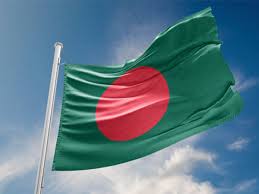DHAKA: Bangladesh has decided to change the name and contents of the UNESCO-recognised traditional procession for the Bengali New Year.
Several Islamic political parties and religious organisations were demanding a change, claiming that the name and contents of the procession are similar to Hindu culture.
Bangladesh will celebrate Bengali New Year 1432, popularly known as “Pohela Boishakh,” on April 14. Mangal Shobhajatra, a mass procession organised by the teachers and students of the Faculty of Fine Arts of Dhaka University, is considered an expression of the secular identity of the Bangladeshi people. It was declared an intangible cultural heritage by UNESCO in 2016, categorised on the representative list as a heritage of humanity.
The name of the Bengali New Year’s procession, “Mangal Shobhajatra”, has been changed to “Barshavaran Ananda Shobhajatra”. This information was announced at a press conference at the Faculty of Fine Arts of Dhaka University on Friday.
The interim government led by Nobel Laureate Muhammad Yunus described the changes as part of the government of “New Bangladesh” policy of “inclusiveness.”
“This year’s Pokela Boishakh will be characterised by cultural healing and cultural inclusiveness,” Mostafa Sarwar Faruki, Adviser for cultural Affairs to the interim government, said.
Hefazat-e-Islam, the largest religious group in Bangladesh, Ameer Allama Muhibullah Babunagari and Secretary General Allama Sajedur Rahman have commented that in the past, the Hindu Janmashtami religious ritual of the Pohela Boishakh celebrations has been imposed on everyone in the name of universality.
“Hindutva symbols, concepts and connotations, including the word ‘Mangal’, must be eliminated from the celebrations of Pohela Boishakh,” said Mufti Syed Muhammad Faizul Karim, the Peer of Charmonai.


